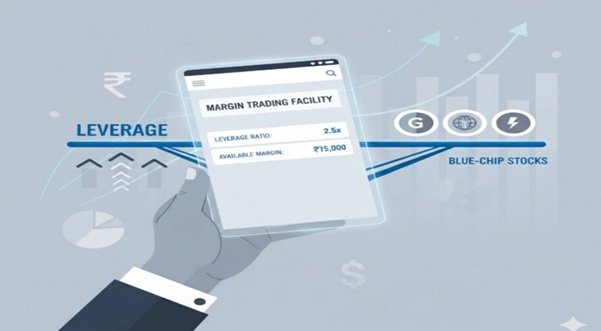A Professional Employer Organization, or PEO, is a firm that partners with small and medium-sized businesses to manage crucial human resource functions. By entering into a co-employment arrangement, a PEO assumes responsibilities related to payroll, HR administration, compliance, and employee benefits. This enables business owners to focus on innovation and growth, rather than dealing with paperwork and legal complexities. The distinction between a PEO and traditional outsourcing or staffing firms is significant. While outsourcing agencies typically supply temporary talent and staffing services, a professional employer organization for SMEs partners with businesses in a more strategic and integrated manner, taking on a much wider range of human resource responsibilities. This partnership not only relieves company leaders but also fosters a supportive environment for employees, enhancing retention and organizational continuity. PEOs provide small and mid-sized companies with resources typically available only to larger enterprises. As workplace regulations and expectations continue to evolve, understanding how a PEO can integrate into your business framework is crucial for staying competitive and capitalizing on new market opportunities.
Why Are Small Businesses Turning to PEOs?
Many small businesses face complex challenges when managing HR compliance, payroll, and benefits. Legal regulations change frequently, and keeping up can strain limited resources. Additionally, offering comprehensive benefits packages—key to attracting top talent—is often out of reach without the pooling advantages that PEOs provide.
The adoption of PEOs among small businesses has grown steadily. Companies that utilize PEOs grow 7-9% faster, have 10-14% lower employee turnover, and are 50% less likely to go out of business. As noted in People Managing People, these outcomes highlight how PEOs provide smaller organizations with access to enterprise-level HR support, thereby driving long-term stability. Take, for example, a technology startup with a staff of just 15 people. By partnering with a PEO, they were able to streamline payroll processing, access healthcare benefits typically reserved for larger companies, and remain compliant with evolving labor laws. This allowed the founders to dedicate time to product development and customer acquisition, fueling faster growth.
Key Services Offered by PEOs
- Payroll and Tax Administration: PEOs manage all aspects of payroll, including withholding, tax filings, and compliance with federal and state laws and regulations. This eliminates manual errors and frees up internal resources.
- Benefits Administration: Through collective bargaining and leveraging purchasing power, PEOs provide access to high-quality health insurance, dental, vision, retirement plans, and other employee benefits at competitive rates.
- Regulatory Compliance Assistance: PEOs keep up to date with labor laws, helping small companies navigate regulatory changes and avoid costly fines or lawsuits.
- Risk Management and Safety Programs: Many PEOs offer training programs and assist businesses in implementing workplace safety initiatives, thereby reducing the risk of injuries and insurance claims.
Benefits of Partnering With a PEO
- Cost Savings and Efficiency: PEOs crush administrative overhead and prevent expensive errors by specializing in HR operations. Their scale can significantly reduce benefit costs, payroll mistakes, and compliance penalties.
- Access to Better Benefits: Through pooled resources, small employers can offer benefits comparable to those of much larger companies, which can lead to higher employee satisfaction and retention.
- Improved HR Support: As HR responsibilities become more complex, having experts on hand is invaluable. PEOs deliver professional guidance in employment law, conflict management, and more.
- Talent Acquisition: Enhanced benefit offerings and HR support also boost your organization’s competitiveness, making it easier to recruit and retain top-tier talent in a tight labor market.
Potential Challenges and How to Overcome Them
Despite their many advantages, some business owners hesitate to use PEOs due to concerns over loss of control, costs, or data privacy. Since PEOs become legal co-employers, it’s essential to establish clear communication and maintain internal oversight over company culture and management decisions.
Open dialogue, periodic check-ins, and regular reporting help ensure both parties remain aligned. Businesses should work closely to define which tasks remain internal versus those fully handled by the PEO. This collaborative approach builds trust and maximizes the benefits of the partnership.
Best practices for smooth transitions include transparent planning, phased onboarding, thorough staff training, and ongoing feedback channels. These steps help mitigate disruptions as workflows and HR systems are integrated.
How to Select the Right PEO for Your Business
Assess your current HR needs, company size, and growth plans to determine which services will bring the most value. Compare PEO providers by their service offerings, industry experience, technology platforms, and customer support. When interviewing potential PEOs, ask about their compliance expertise, flexibility, benefits packages, and contract terms.
Current Trends in the PEO Industry
- Technology Integration: Modern PEOs rely heavily on HR software to automate payroll, enrollment, and compliance management, improving both accuracy and efficiency.
- Remote and Hybrid Workforces: Demand for HR support among remote teams is booming, driven by workplace changes following the pandemic. PEOs adapt by offering digital onboarding and virtual support services.
- Wellness Innovations: As employee wellbeing grows in importance, PEOs are rolling out innovative health, wellness, and mental health programs to help client businesses support their workforce holistically.
Final Thoughts
Professional Employer Organizations provide small businesses with vital HR expertise, premium benefits, and operational efficiency—critical assets in a competitive market. By removing administrative barriers and offering strategic support, PEOs empower entrepreneurs to focus on growth and innovation.
For businesses seeking to streamline operations and strengthen their teams, exploring a partnership with a PEO can be a game-changer. Take time to assess your unique needs, evaluate providers, and leverage available resources to make an informed decision.









